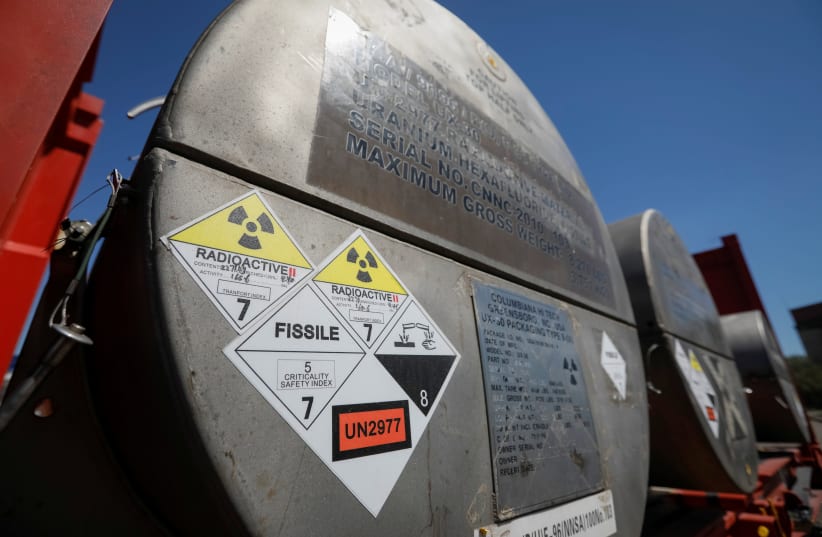A UN treaty banning nuclear weapons by 50 governments is slated to go into effect on January 22, 2021, as the latest global step toward the elimination of nuclear weapons.“The entry-into-force of the Treaty on the Prohibition of Nuclear Weapons is the culmination of a worldwide movement to draw attention to the catastrophic humanitarian consequences of any use of nuclear weapons,” UN Secretary General Antonio Guterres said on Friday.The treaty was first drawn up in 2017 through a UN General Assembly resolution and has the support of more than 80 nations. But it could not go into effect until at least 50 governments had ratified it, a move that occurred only on Friday with an agreement by Honduras to do so.None of the world’s nuclear powers supported the treaty, which was ratified by only three Western countries: Austria, Ireland and New Zealand.Two of the signatories to the treaty are not officially considered to be among the UN’s 193 nations: the Palestinian Authority and the Holy See. Both entities have the status of nonmember states, which gives them signatory power for UN treaties and accords.Israel has not signed the treaty. It is widely considered to have nuclear weapons but has rejected such claims.Guterres said the treaty “represents a meaningful commitment towards the total elimination of nuclear weapons, which remains the highest disarmament priority of the United Nations.” The treaty’s “entry-into-force is a tribute to the survivors of nuclear explosions and tests, many of whom advocated for this treaty,” he added.Guterres has been a strong advocate for global action against nuclear weapons.According to the Geneva-based International Campaign to Abolish Nuclear Weapons, some nine nations are in possession of 13,400 nuclear warheads. Russia has the largest arsenal with 6,375 warheads, followed by the US with 5,800. In addition, according to ICAN, China has 320, France has 290, the UK has 215, Pakistan has 160, India has 150 and North Korea has 30 to 40. The campaign has also alleged that Israel has 90 nuclear warheads.ICAN executive director Beatrice Fihn said the Treaty on the Prohibition of Nuclear Weapons marked “a new chapter for nuclear disarmament. Decades of activism have achieved what many said was impossible: Nuclear weapons are banned.”“Real leadership has been shown by the countries that have joined this historical instrument to bring it to full legal effect,” she said. “Desperate attempts to weaken these leaders’ commitment to nuclear disarmament demonstrate only the fear of nuclear-armed states of the change this treaty will bring.”Based on the document’s text, signatories to the treaty have agreed not to “develop, test, produce, manufacture, otherwise acquire, possess or stockpile nuclear weapons or other nuclear explosive devices.” They have also agreed not to assist in the development by other countries in the production or transfer of such weapons.The treaty exists in conjunction with a 1968 Treaty on the Non-Proliferation of Nuclear Weapons, which has the support of 188 countries and governments. Israel is not a signatory to that treaty, but the PA has signed onto it.The Treaty on the Prohibition of Nuclear Weapons has been ratified by Antigua and Barbuda, Austria, Bangladesh, Belize, Bolivia, Botswana, Cook Islands, Costa Rica, Cuba, Dominica, Ecuador, El Salvador, Fiji, Gambia, Guyana, The Holy See, Ireland, Jamaica, Kazakhstan, Kiribati, Lao People’s Democratic Republic, Lesotho, Malaysia, Maldives, Malta, Mexico, Namibia, Nauru, New Zealand, Nicaragua, Nigeria, Niue, Palau, Palestinian Authority, Panama, Paraguay, Saint Kitts and Nevis, Saint Lucia, Saint Vincent and then Grenadines, Samoa, San Marino, South Africa, Thailand, Trinidad and Tobago, Tuvalu, Uruguay, Vanuatu, Venezuela and Vietnam.
UN nuclear ban treaty goes into effect on January 22nd
None of the world’s nuclear powers supported the treaty, which was ratified by only three Western countries: Austria, Ireland and New Zealand.
